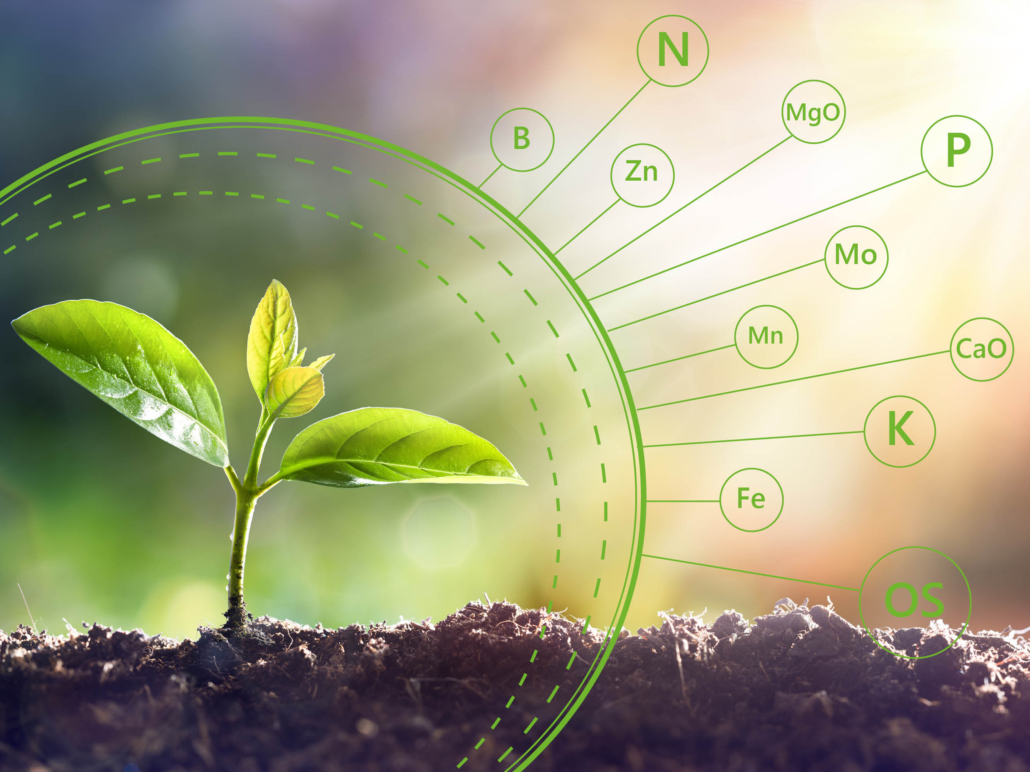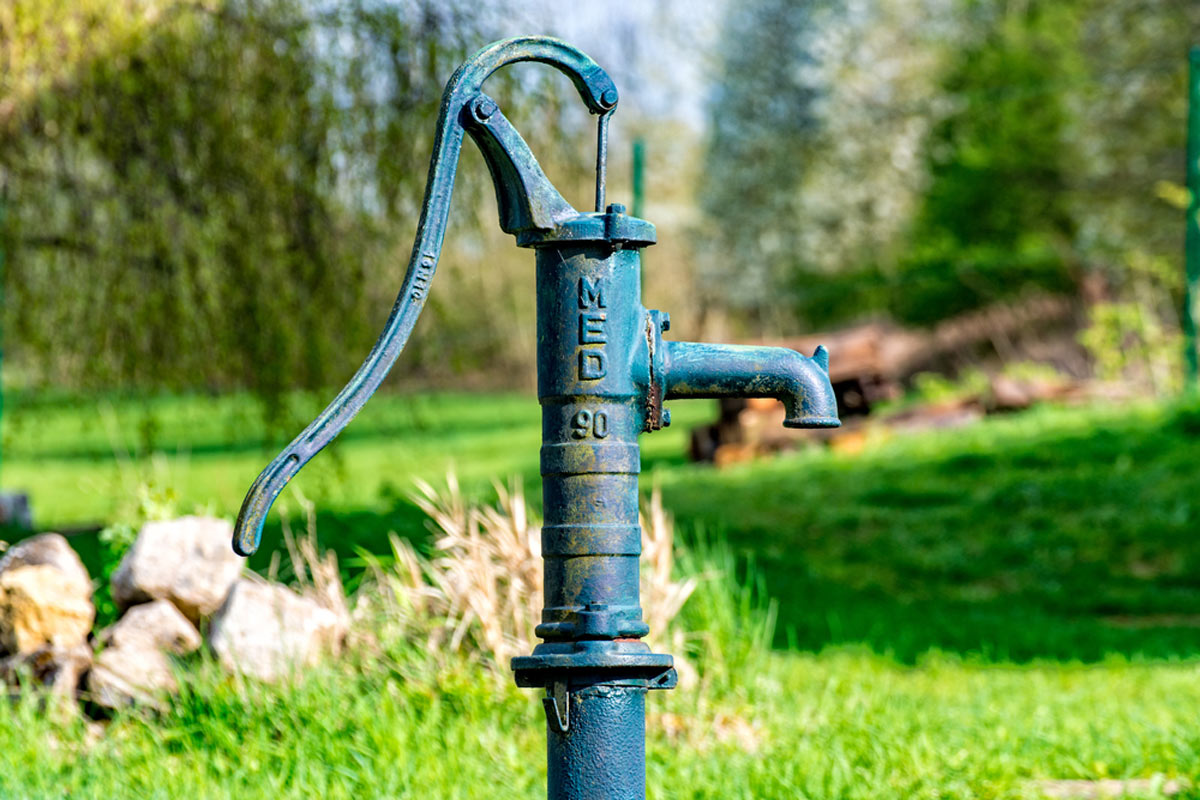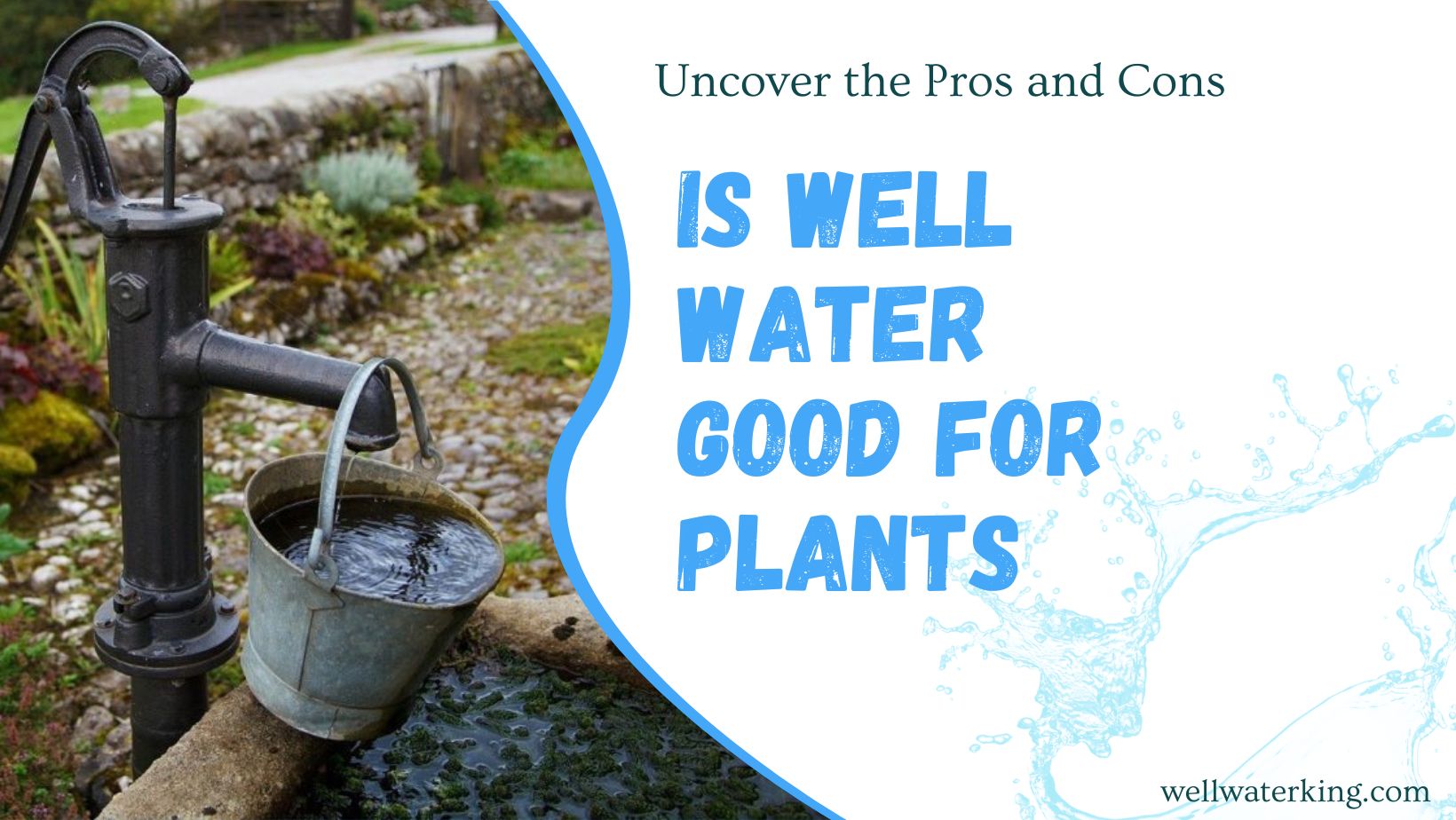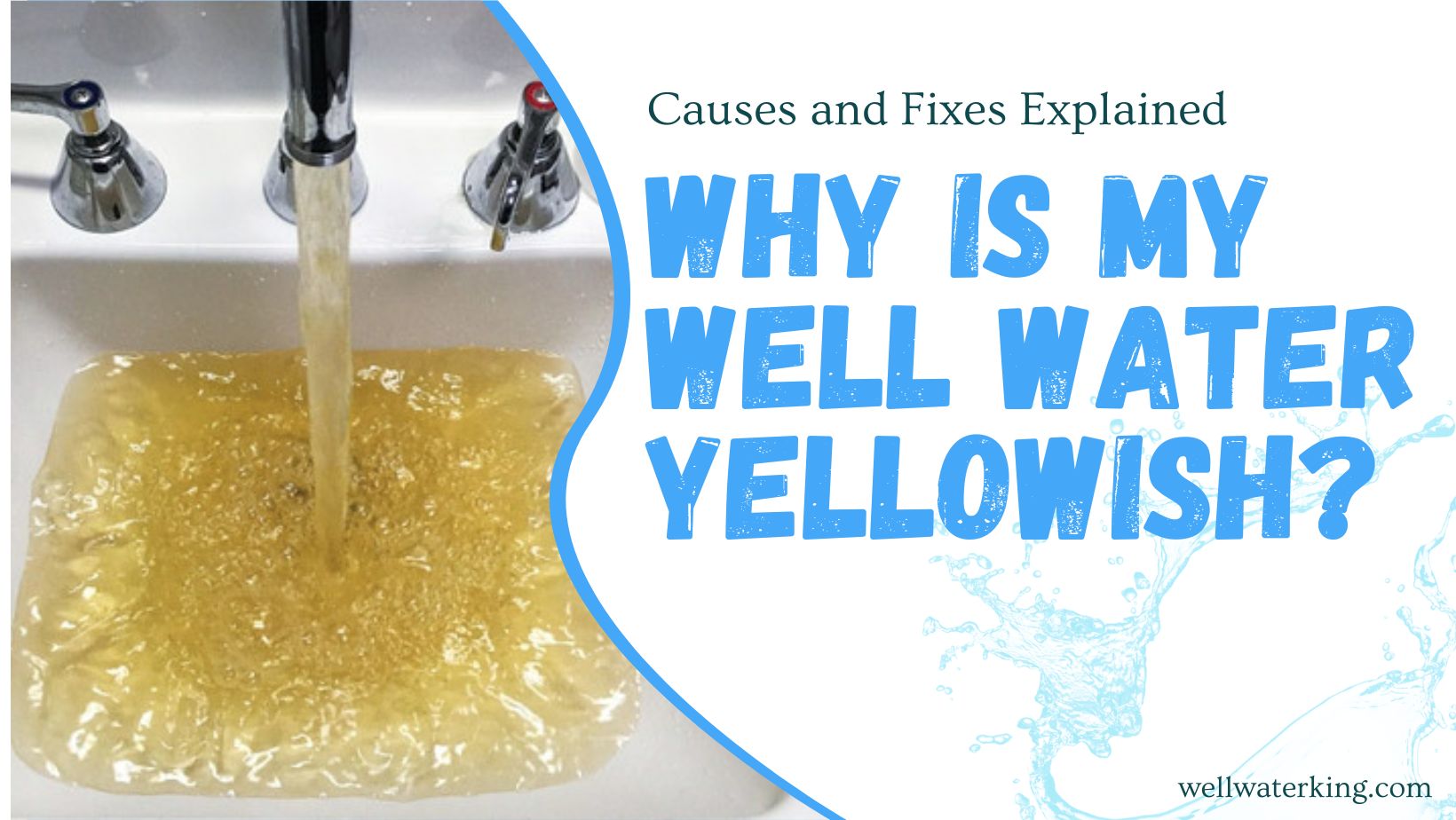When it comes to watering our gardens and houseplants, we want to provide the healthiest water possible. For many homeowners and growers, well water is an abundant and convenient source right on their property. However, the question remains: is well water good for plants?
We’ll explore the key factors that determine if well water is suitable for use on plants and crops. Well water varies greatly in its mineral content and quality based on the depth, geology, and environment of the water source. While wells can provide a natural nutrient boost, contamination risks like bacteria, heavy metals, and excess sodium could negatively impact plant growth and soil conditions over time.
We’ll cover water testing recommendations, treatment options if issues are found, and best practices for irrigating from a well while avoiding potential pitfalls. You’ll learn how to harness well water as a sustainable nutrient reservoir for your plants and garden with proper precautions.
What’s in Well Water?
Well water contains minerals and nutrients that have seeped into the groundwater supply. Some of these are beneficial for plant growth, while others can be harmful if present in high concentrations. The quality and composition of well water varies greatly depending on the geology and environment of the land.
Some of the most common substances found in well water include:
- Calcium – Strengthens plant cell walls
- Magnesium – Helps plants absorb nutrients
- Iron – Aids in photosynthesis
- Manganese – Helps with enzyme functions
- Sulfates – Macro nutrient, aids growth
- Sodium – High levels cause salt damage
Additionally, well water usually does not contain added chlorine, fluorine or other chemicals found in municipal water sources. This makes it more natural for watering plants. However, there is a risk of contamination from minerals, metals, bacteria and fertilizer runoff.
Macro and Micronutrients Plants Need

Plants require a variety of nutrients to grow and thrive, including both macronutrients and micronutrients. Macronutrients are nutrients that plants require in larger amounts, while micronutrients are needed in smaller quantities.
The importance of these nutrients cannot be overstated, as they are necessary for plant growth and development. Macronutrients are taken up in larger quantities and contribute to over 95% of a plant’s entire biomass on a dry matter weight basis. Micronutrients, on the other hand, are present in plant tissue in quantities measured in parts per million, ranging from 0.1 to 200 ppm, or less than 0.02% dry weight. Deficiencies in either macronutrients or micronutrients can lead to significant problems for plants, including reduced yields, poor quality, and increased susceptibility to pests and diseases. le in plant growth and development.
Here is a list of the macro and micronutrients plants need:
Macro-nutrients:
| Nutrient | Role in Plant Growth |
|---|---|
| Nitrogen (N) | Important for healthy green growth and plant proteins |
| Phosphorus (P) | Helps with root development, flower and seed production |
| Potassium (K) | Key for water regulation, starch synthesis, and stalk/stem strength |
| Calcium (Ca) | Strengthens plant cell walls and improves fruit quality |
| Magnesium (Mg) | Central for photosynthesis, phosphorus uptake, and enzyme activation |
| Sulfur (S) | Necessary component of key amino acids and vitamins |
Micro-nutrients:
| Micronutrient | Role in Plant Growth |
|---|---|
| Boron (B) | Helps with cell wall strength and water use efficiency |
| Copper (Cu) | Allows for carbohydrate metabolism and enzyme activation |
| Chlorine (Cl) | Required for osmosis and ionic balance |
| Iron (Fe) | Essential for chlorophyll synthesis and enzyme systems |
| Manganese (Mn) | Aids in photosynthesis, chloroplast formation, and nitrogen metabolism |
| Zinc (Zn) | Important for seed and grain formation, auxin metabolism, and enzyme activation |
Having adequate amounts of both macro and micronutrients allows plants to complete vital processes like photosynthesis, respiration, enzyme functions and metabolizing nutrients. Well water infused with bioavailable forms of these substances can be quite beneficial for plant health and development when used for irrigation.
Importance of Well Water Quality for Plant Growth

While well water contains mineral nutrients, the quality and balance of its composition is a crucial factor for plants. Here are some key considerations:
- Salinity & Sodium Content – High salinity damages roots and inhibits water/nutrient uptake. Sodium can deteriorate soil structure over time.
- Heavy Metals – Metals like arsenic, mercury and lead are toxic. Iron, manganese and zinc in excess also cause issues.
- Bacterial Contaminants – Pathogens like E. Coli, salmonella and legionella can severely impact plants and gardeners.
- Nutrient Balance – Both low and excessive levels of nutrients can affect plant health and taste.
- pH Levels – Well water pH affects solubility of nutrients. Ideal range is 6.0 to 7.0 for most plants.
Regular testing helps monitor well water quality and determine if treatment is needed before irrigating plants and crops.
Factors Affecting Well Water Quality
- Underground rock & soil deposits – Mineral content derives from surrounding geology.
- Agricultural/industrial runoff – Nearby pollution risks contaminating groundwater.
- Septic systems – Improper septic placement/maintenance causes bacterial & nutrient contamination.
- Seasonal variations – Heavy rains or drought alter groundwater levels and dilution of substances.
- Well depth/location – Surface-sourced wells are more prone to contamination than deep wells tapping confined aquifers.
- Frequency of use – Regular pumping helps maintain freshness. Stagnant wells allow metals to accumulate.
Pros of Using Well Water on Plants
When well water quality is good, it has multiple advantages for watering plants:
- Provides a range of natural mineral nutrients like calcium, magnesium and iron
- Usually free of chlorine and fluoride commonly added to municipal supplies
- Soft water lacking chlorine is gentle on plants
- Good bacterial diversity can benefit plant roots and soil health
- Groundwater temperatures are more stable than surface water
- Does not contain volatile organic compounds from water treatment processes
- May have slightly acidic pH beneficial for some plants
- Lack of chemicals provides very pure water source.
Using well water is a great way to provide plants with nutrient-rich water without synthetic additives or harsh compounds if the source is contaminant-free.
Cons of Using Well Water on Plants
Potential drawbacks of using well water for irrigation:
- Bacterial contamination from surface pollution, livestock waste, or poor well construction
- Heavy metals like arsenic, lead or mercury may exceed safe levels
- Nutrient levels like nitrogen could be excessively high
- pH might be unsuitable for certain plants
- Old wells may accumulate metals like iron and manganese
Drawbacks primarily depend on the well’s location and environment. Annual testing helps determine if treatment is needed before watering plants or crops.
Bottom Line
When it comes to irrigating with well water, the ultimate determining factors are the quality and nutrient balance of your specific water source. While wells can provide a wealth of natural minerals to enhance plant growth, contamination risks such as bacteria, heavy metals, and excess sodium could potentially damage plants and soil over time if water quality isn’t properly managed.
The takeaway is to test your well water frequently and take steps for filtration or treatment if any concerning issues are found. Work to understand the unique chemical signature of your well based on its depth, geology, and environmental inputs. This allows you to leverage the advantages of well water while avoiding possible drawbacks through monitoring and maintenance.



